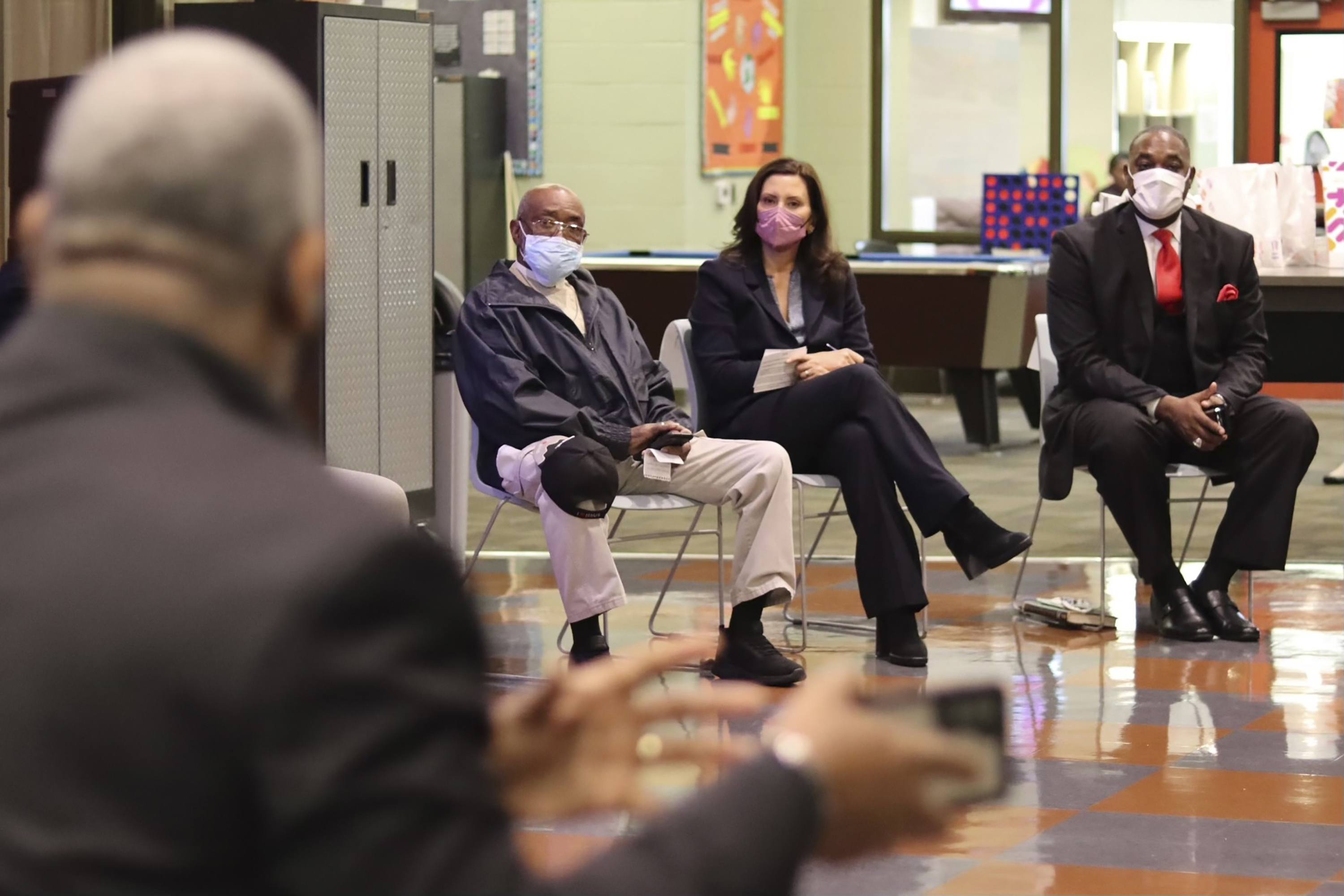After years of residents in Benton Harbor, Michigan knowingly drinking lead-contaminated water, officials are finally doing something about it.
Following a petition filed to the U.S. Environmental Protection Agency in September by 20 environmental and advocacy groups, state and city officials have announced a series of actions to address Benton Harbor’s drinking water crisis.
First, Michigan Governor Gretchen Whitmer appropriated $10 million in the state’s 2022 budget for replacing Benton Harbor’s lead drinking water pipelines. She then issued an executive directive that included mandating free access to bottled water, lead water testing, and health services for Benton Harbor residents. Whitmer also moved up the timeline to replace all the lead pipes in the city within the next 18 months, compared to a previous five-year goal, and asked legislators for an additional $11.4 million to do so. On Tuesday, she made an unannounced visit to Benton Harbor to meet with residents and community leaders to discuss solutions.
Also this week, Benton Harbor city commissioners declared a state of emergency, giving Mayor Marcus Muhammad authorization to work full time to address the lead contamination issue and establish a community response team. (It’s a move some are critical of, after years of inaction on the water problem from the mayor.)
The situation has also prompted an investigation from the Senate Oversight Committee into Michigan’s environmental regulatory department, the Department of Environment, Great Lakes, and Energy, or EGLE. In a letter Monday, the Committee gave EGLE 10 days to turn over documents and communications regarding its response to the water issue over the last several years.
“We’re happy to see it be treated as the public health emergency we believed it was when we filed the petition,” Nick Leonard, executive director of the Great Lakes Environmental Law Center, told Grist.
For three years, water tests from houses across Benton Harbor showed lead levels well above allowable limits. The city of almost 10,000 people, located in western Michigan, is 84 percent Black, and almost 50 percent of its residents live in poverty. One home’s water test measured lead levels of 889 parts per billion — almost 60 times higher than the federal limit. The problem, caused by corroding old pipes, was well known by the state environmental regulatory department and advocacy groups. But it wasn’t until the September petition — and subsequent widespread media attention — that the city finally started to get some relief.
State agencies began delivering clean drinking water to Benton Harbor residents at the end of September. They’ve since distributed over 33,000 cases of bottled water to homes and businesses. In October, an official advisory was issued by the Michigan Department of Health and Human Services, warning residents to use bottled water for drinking, bathing, and cooking.
Mayor Muhammad has also asked Whitmer to subsidize residents’ water bills, similar to credits that were approved during Flint’s water crisis.
But while Benton Harbor residents welcome the help, they also say it came far too late. Reverend Edward Pinkney, a local community leader, told the news site Bridge Michigan that they are considering a class-action lawsuit against the state. Drinking lead-contaminated water can result in long-term health issues for children, as well as health problems for adults including joint pain, high blood pressure, and miscarriage.
The EPA is still reviewing the petition and hasn’t issued a final decision on it yet.
Leonard, of the Great Lakes Environmental Law Center, said that the Senate Oversight Committee’s investigation into EGLE is “largely, a political grandstanding.” Claims that the department covered up the issue are not accurate, he said. But, he told Grist he “absolutely” feels like there needs to be accountability from the state government for allowing this to happen. Leonard told Grist that Benton Harbor’s drinking water issues really go back even further than three years.
“Now, at least to some degree, Benton Harbor residents are getting the emergency response they deserved for some time, ” he said.



